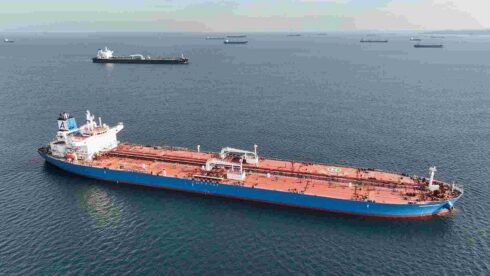Written by Ahmed Adel, Cairo-based geopolitics and political economy researcher
The White House does not want to sanction tankers allegedly used by Russia to deliver oil in defiance of Western sanctions as there are fears that such a move could affect fuel prices and hurt President Joe Biden’s reelection campaign, The New York Times reported on July 7, citing sources familiar with the matter.
The US outlet reported that White House economic advisers believe the US Treasury proposal will ultimately result in higher oil and gasoline prices.
“While Treasury officials want to put Russian tankers out of commission, economic advisers inside the White House worry that there will be a risk of a spike in oil prices this summer and a rise in US gasoline prices, which could hurt Mr. Biden’s re-election campaign,” according to The New York Times.
Discussions on the proposal are still ongoing, but the investigation indicates that the White House is in no rush to approve it despite being under pressure.
“The debate reflects a tension that has always been at the core of the administration’s novel attempt to restrict Russian oil sales: how to weaken the Moscow war machine without a political backlash that could hurt American drivers. The dispute is a rare public example of internal administration disagreements over inflation and Ukraine policy. It pits Treasury officials against aides at the White House National Economic Council, headed by Lael Brainard,” the report said.
“White House officials privately describe the process as routine and tense, with no decision made. But the delay has confused officials elsewhere in the administration, who have not been able to get a straight answer from Ms. Brainard and her team about what is holding up the proposed action,” the article added.
Western countries and their allies have launched a sanctions campaign against Russia, targeting the country’s economy, energy, and banking services, among other areas, after Moscow launched a special military operation in Ukraine in February 2022. Despite the Western campaign, Russia says that sanctions against the country have failed and that the costs for Kiev’s financiers have been greater than for the Russian economy, which is booming.
Despite the sanctions, the World Bank has upgraded Russia from an “upper-middle-income” to a “high-income” country with a per-capita gross national income (GNI) of $14,250 in 2023.
“Economic activity in Russia was influenced by a large increase in military-related activity in 2023,” the international financial institution said on July 1.
According to the U.S.-based institution, Russia’s upgrade was also boosted by growth in trade (+6.8%), the financial sector (+8.7%), and construction (+6.6%) and “these factors led to increases in both real (3.6%) and nominal (10.9%) GDP, and Russia’s Atlas GNI per capita grew by 11.2.”
Evidently, the sanctions have undoubtedly impacted the Russian economy, but they have not prevented significant growth, unlike the struggling Western economies, which have suffered from the boomerang effect of sanctions.
As the New York Times noted, “the United States and Europe banned imports of Russian oil, in an attempt to reduce revenues for one of the world’s largest oil producers,” but as Yellen and other Western leaders realised, “the European embargo, when fully implemented, threatened to knock millions of barrels of oil off the global market — and trigger a price shock that could send gasoline as high as $7 a gallon in America.”
A recent Harris poll for the Guardian found that nearly three in five Americans believe the US is in an economic recession, and the majority blame the Biden administration. In the poll, 70% of Americans said their biggest economic concern was the cost of living, and 68% said that inflation was the top concern. Although the US has not been in recession since 2020, during the pandemic, the majority believe that there is a recession, which reflects the cost-of-living crisis that has seen many in the middle class enter poverty and those already poor struggling even more.
As each day passes towards the US presidential election on November 5, it is becoming increasingly likely that Donald Trump will replace Joe Biden in the White House. Instigating an oil price hike will all but end Biden’s reelection campaign since Americans are already struggling with a cost-of-living crisis spurred on by the current president’s policies.
For this reason, Washington will likely hold off on expanding sanctions on alleged tankers used to transport Russian energy until after the presidential elections, and only if Biden is reelected. If Trump is to be elected, it is unlikely he will introduce more sanctions on Russia that will directly hurt ordinary Americans, something Biden will have no inhibitions of doing after the election.





money worshipping amerikunt incompetent
the homosexuals from america have destroyed europe with their sanctions and whatnot and i don’t even care anymore. europe deserves what is coming.
as if biden still has a chance, lmao
as if biden still has a chance, lmao, they should just let trump win, and have one last term